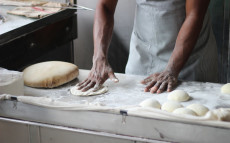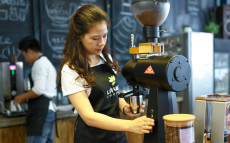- pathfindersAI
- Job Profile
Cooks, Private Household
Summary
Cooks, Private Household: A Comprehensive Career Guide
What They Do
Cooks in private households occupy a unique and intimate sector of culinary professions. Unlike their counterparts in bustling restaurants or high-pressure commercial kitchens, private household cooks dedicate their culinary talents to serving families, individuals, and occasionally small private events within the private setting of homes. Their role transcends merely preparing meals; they curate personalized dining experiences, tailor menus to the specific dietary needs and preferences of the household, and often partake in the cultural and social aspects of meal sharing. This role demands a blend of expert culinary skills and interpersonal finesse, making it a unique and rewarding career path.
Job Responsibilities
The responsibilities of a private household cook are manifold and variable, hinging on the specifics of the hiring household. Key tasks include planning and preparing daily meals, ensuring variety, balance, and adherence to nutritional guidelines. These cooks often manage kitchen inventories, engage in grocery shopping, and maintain the highest standards of kitchen hygiene. Additionally, they may be tasked with accommodating special dietary requirements or restrictions, and occasionally, planning and executing small-scale catering for household gatherings or celebrations. Beyond cooking, a private household cook might also collaborate on household budgets, provide dining etiquette insights, and sometimes partake in the training of other kitchen or household staff.
Essential Skills
To excel as a private household cook, a diverse skill set is paramount. Culinary proficiency is, of course, a cornerstone, encompassing knowledge of various cooking techniques, cuisines, and dietary trends. Furthermore, creativity and adaptability are essential; the ability to innovate and tailor dishes to the tastes and health needs of the household cannot be overstated. Organizational skills are crucial for menu planning and kitchen management, while strong interpersonal skills ensure harmonious interactions with employers and possibly other household staff. Confidentiality and discretion are also critical, given the private and personal nature of the work environment.
Educational Pathways
The journey to becoming a private household cook typically starts with a solid foundation in culinary arts. Many aspiring cooks pursue formal education, such as an associate degree or certificate from a culinary school, where they master essential techniques, food safety protocols, and menu planning. Some may opt for apprenticeships or internships to gain hands-on experience. Additionally, specialized training in nutrition, dietary needs, and certain cuisine styles can be advantageous. Continuous professional development through workshops, courses, or certifications (e.g., ServSafe) ensures that cooks stay abreast of industry standards and trends.
Career Prospects
The demand for private household cooks is consistently stable, driven by individuals and families seeking personalized culinary services. Career prospects in this field are largely promising, with opportunities varying based on geographic location, economic climate, and demographic trends. Cooks can find employment with single families, high-net-worth individuals, or within compounds or estates requiring multiple culinary professionals. Some may progress to managerial roles, overseeing other kitchen staff or expanding their services to cater small events. Networking, references, and a strong professional reputation are key factors that can enhance career advancement and job stability in this field.
Conclusion
A career as a private household cook offers a unique blend of personal interaction and culinary creativity, catering to a specific niche within the broader culinary profession. It requires a confluence of culinary expertise, meticulous organizational skills, and the ability to maintain discretion and professionalism. With a solid educational background and continuous professional development, individuals can enjoy a rewarding and dynamic career. The stability and personalized nature of this role not only offer job satisfaction but also the unique opportunity to significantly impact the daily lives and well-being of those they serve. As such, aspiring cooks who appreciate intimacy, creativity, and variety may find this career path exceptionally fulfilling.
Video
Compensation
Similar Occupations
In this area you will find other occupations that are close to the one you were viewing in tasks, knowledge and work environment. If the primary job profile you are viewing isn't quite to your liking, take a look around and see what else is available.
Basic and Premium Accounts have more alternative occupations available than the Free account.

Bakers - 51-3011.00
A baker prepares and bakes various types of breads, pastries, and other baked goods by mixing ingredients, kneading dough, and monitoring baking times and temperatures. They often work early hours to ensure fresh products are available for customers each day.
-
$34,950/yr
Median Pay -
220,230
Number of Jobs

Baristas - 35-3023.01
A barista is a skilled professional who prepares and serves coffee and espresso-based beverages in a café or coffee shop setting. They also handle customer orders, operate espresso machines, and ensure a high standard of drink quality and presentation.
-
$29,540/yr
Median Pay -
3,676,580
Number of Jobs